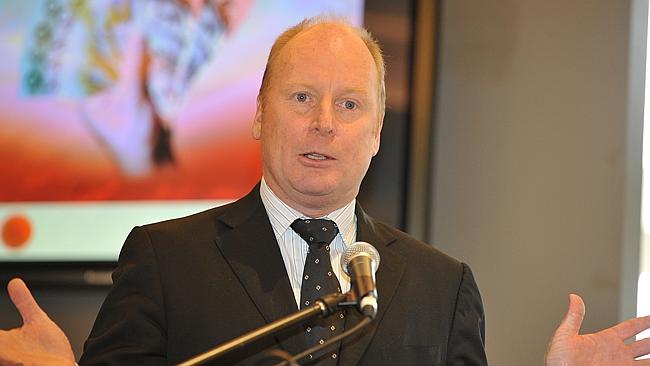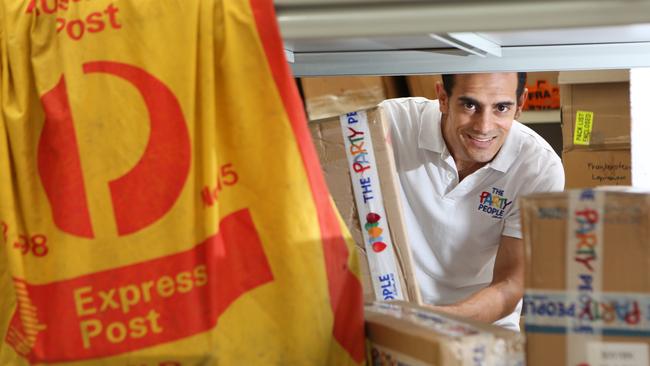The road ahead for Australia is transport
AUSTRALIA’S freight is forecast to rocket by 80 per cent in 15 years and Japan Post is just one player keen to jump in on the action.

One of the biggest changes for business in the past decade is the matter of logistics. The relatively simple task of moving goods and services from point-A to point-B is a complex industry that means the life or death for the businesses that rely upon it.
Think all online businesses and any company that ships parcels or documents: intercity, interstate, overseas. In other words, the vast majority of Australian business rely on efficient and cost-efficient logistics and transport solutions.
The Bureau of Infrastructure, Transport and Regional Economics says Australia’s freight is expected to rise 80 per cent in the next 15 years, and by 300 per cent by 2050. With these projections, it is little surprise that more players are entering the industry, creating more competition.
The past couple of weeks has seen important changes that highlight new competition and the threats to the incumbent giant, Australia Post, which foreshadowed its first full-year loss in 30 years.
In the six months to December, Australia Post suffered a $151 million loss in its letter delivery business — but it has flagged that this is set to further deteriorate in the future.
In the same period the profitable parcel services business saw revenue rise 4 per cent and its business parcel revenues increased 5 per cent, despite increasing competition.
The second key move was Japan Post’s move on Australia’s biggest private transport company Toll Holdings. Toll is already a significant competitor to Australia Post, but you sense that will increase with the additional balance sheet strength of Japan’s Post Office behind it.
The competition is one thing: the efficiency of transport systems is the other. Every business, from the largest to the smallest, strives to do things more efficiently. If you save time, you save money. To reduce double and triple handling of goods and to delivery to customers more quickly and cheaply improves competitiveness and improves productivity in the economy.
The Australian Logistics Council says a 1 per cent improvement in productivity in the logistics industry will boost the national economy by $2 billion. Bear in mind that this could be goods flowing through warehouses into supermarkets, from farms to markets, from mines to ports, or from garage-based businesses to customers.
Transport, warehousing and logistics are cost inputs for most other businesses so the need for strong competition is essential for improvements in the bottom line. But there is another factor — in order for more and better infrastructure, there needs to be a commensurate return for infrastructure and transport companies to invest.
Alternatively there needs to be a massive pressure on government to keep creating the infrastructure that will move freight more efficiently, giving transport operators the chance to make their services cost-efficient and competitive.
HOW THE POST OFFICE JOINED THE PARTY
THE Party People started its life without the bang you might expect with a name like that. Mala Salakas and her father Peter Nikolas set up a shop in Sans Souci to provide party supplies.
The business did well, and Mala was ambitious. In the late 1990s she drove The Party People online and created an internet site when others questioned the strategy, and her sanity.
As her son Dean, who now runs the business, says: “She was crazy when you think about it. At the time we were getting only one or two orders a week. It slowly grew.”
About five years later Dean used his own family’s business as a case study for his university degree. He used the assignment as a way of solving the family’s transport and logistics issues. One of the issues was a flat delivery charge to take into account that some orders went to Perth and others went across Sydney. It meant the business was pricing itself out of the local market.

“So I looked at the average delivery size and came up with more reasonable delivery system for regional areas, especially on the north coast and Queensland, where we were getting more inquiries. The result was we trebled our sales overnight, and went from doing 10 orders a day to 30 a day,” Dean said.
The deliveries were first sent to the Post Office each day in the family’s car … then a van was bought and the van was constantly being filled.
What caused some friction in the family, was when Dean and his brother Peter put their feet down and stopped their parents’ daily deliveries to the Post Office.
As Peter sees it: “They made friends at the Post Office and it was the way they always handled the deliveries. But we could see it made sense to go a different way.”
The brothers got Australia Post’s highly competitive eParcel business on board.
“They send a truck to us every day. But these days we fill the truck, which is a bit different to what it was.”
One reason this system works for The Party People is that Australia Post delivers to PO boxes and because, for a lot of locations, they remain among the cheapest services




